Orthopaedic
Orthopaedics is an area of medicine that deals with the care of the body's muscles and bones. In addition to muscles and bones, there are joints, tendons and ligaments too. An orthopedist is a doctor who specializes in orthopaedics.
Orthopaedists are classified into the following categories according to their specialization:
- Foot and ankle
- Joint replacement
- Hand extremity
- Musculoskeletal cancer
- Sports medicine
- Spine surgery
To know more, consult an ortho doctor near you or visit an ortho hospital in Tardeo.
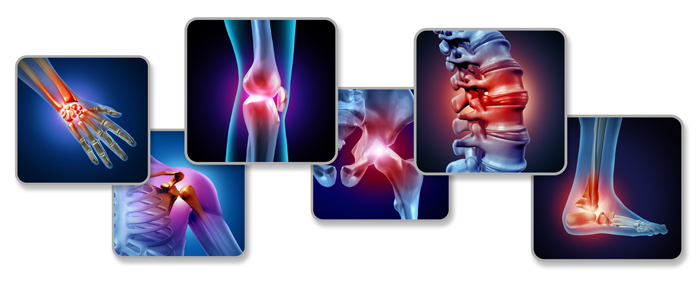
What are the symptoms of orthopaedic conditions?
Major symptoms of orthopaedic diseases that manifest themselves in daily life include the following:
- Muscle and joint aches
- Muscle pain
- Muscle numbness
- Muscle rigidity
- Restrictions on joint movement
- Irritation or pain in joints, muscles and tendons
- Bone sticking through the skin
- Severe pain
What are the causes of orthopaedic conditions?
Orthopaedic diseases can have a variety of causes. They can be caused by environmental factors, hereditary factors, age, obesity, arthritis, osteoporosis, a decrease in calcium levels in the body, and other factors that can affect the regular functioning of joints, bones, muscles, tendons, and ligaments. Injury to the bones and muscles can be a factor as well. Sometimes there are no obvious indicators of bone deterioration due to factors such as radiation exposure, chronic disorders, and so on. Indeed, the causes and symptoms can differ from person to person. Orthopaedic issues can harm one's mental and physical well-being.
When do you need to see a doctor?
Pain has a direct impact on your daily activities. Symptoms that directly or indirectly damage the musculoskeletal system indicate that you should see an orthopaedist as soon as possible. Conditions include bone pain, fractures, dislocations, swelling, ligament tears, tendon tears, ankle and foot deformities, hand infection, frozen shoulder, knee pain, fractures, and disk pain or dislocation.
If you observe any indications of infection, inflammation or pain in your joints, muscles or ligaments, consult your doctor.
Request an appointment at Apollo Spectra Hospitals, Tardeo, Mumbai.
Call 1860 500 2244 to book an appointment.
What are the risk factors for orthopaedic diseases?
The general risk factors are:
- Aging
- Being overweight puts an additional strain on bones, joints, and joint structures
- Having a long-term illness, such as diabetes
- Participating in sports or other intense physical activities
- Smoking
- Incorrect lifting techniques and body mechanics
How are orthopaedic diseases treated?
- Surgery or non-surgical treatment options are available. Both therapies are based on the intensity of a patient's symptomatology.
- Orthopaedic problems can be treated surgically in the following ways:
- Arthroplasty, the surgery used to treat joint issues
- Other surgeries to heal serious injuries, including fracture repair surgeries as well as grafting of bone
- Treatment for spine-related disorders through surgery
Orthopaedic non-surgical treatments include:
- If the symptoms are modest, medications can help relieve discomfort or inflammation
- In order to achieve better results, therapy or rehabilitation may also be recommended after orthopedic surgery
For further information related to surgery, consult an orthopedic surgeon at Apollo Spectra Hospitals, Tardeo, Mumbai
by calling 1860 500 2244.
Conclusion
Specialists in orthopedics treat musculoskeletal injuries that may have occurred at birth or as a result of prolonged exercise or during an accident. There are both surgical and non-surgical approaches to treating orthopaedic disorders. Recovery depends on early discovery and prompt treatment.
Numerous orthopaedic diseases can cause incapacity and persistent issues if they are not treated properly and adequately recovered. Consult your doctor before taking any treatment. Ask your doctor about possible issues and how you can prevent or manage them together.
A2- Orthopaedists always recommend testing based on the severity of complaints. The following tests are performed:
- X-Ray
- CT SCAN
- MRI examination
- Biopsy of bone marrow
- Skeletal scintigraphy (the study of bones in the human body)
- Electromyography
- Biopsy of muscles
It depends on the surgery. Over time, the discomfort tends to wax and wane. It may not totally go away, but it does feel considerably better at times. Pain from an accident usually subsides after a few days, but if you have a sore joint, you may be unable to conduct certain activities. It is preferable to relax and gradually increase activity levels over time, so that bone movement returns to normal.
Our Patient Speaks
My name is Chetan A shah and we came to Apollo Spectra Hospital for the TKR treatment of my father, Mr Arvind. C. Shah. We are very thankful to Doctor Nilen Shah as this hospital was recommended to us by him. We are thoroughly satisfied with the efficient service and treatment provided by the staff at Apollo. The staff members are very cooperative and treat you with great respect. I will surely re...
Arvind Shah
Orthopaedics
Total Knee Replacement
We came to the Apollo Spectra Hospital to get my grandmother left forearm ORIF surgery done by Dr Hitesh Kubadia. During the course of her stay here, the staff was very prompt and attentive to all her needs. They helped her settle in and made her comfortable during her stay, assisting her in every way they could, no matter what she needed help with. They also kept her hopeful and positive througho...
Hiraben
Orthopaedics
Forearm Reconstruction
My son, Raiyaan underwent a surgery here at the Apollo Spectra Hospital for Left ACL Reconstruction with Meniscal Repair, performed by Dr Nadir Shah. The surgery was a great success. I found the staff at the hospital to be very helpful and cooperative, and the hospital to be very a clean and hygienic place. My child was well looked after at the hospital during his stay. I would like to give specia...
Master Raiyaan
Orthopaedics
ACL Reconstruction
I came to Apollo Spectra Hospital Tardeo for my wife Mrs Najuk Jain who was suffering from chronic Knee pain, Dr Nilen Shah suggested Knee Replacement Surgery. I’m very happy with the guidance & treatment given by Dr Nilen Shah and Apollo nurses & staff. Overall, I had a very pleasant and smooth experience at the Apollo Spectra Hospital and would like to thank everyone at the hospital who helped...
Najuk Jain
Orthopaedics
Total Knee Replacement
My father, Said Daud Al Zadjali has undergone two surgical procedures here at the Apollo Spectra Hospital - a knee replacement surgery and urology procedure. In our opinion, Dr Satish Puranik is a huge asset to the Apollo Spectra Hospital. The doctors concerned with both the surgeries were very talented and experienced and decided to perform both the procedures together in one surgery. We were inf...
Said Dawood
Orthopaedics
Total Knee Replacement
Shobha Gawali, my wife, was troubled with knee pain for the past 4 years. After several failed attempts at home remedies and medical treatments alike, we consulted Dr. Ajay Rathod. He advised bilateral TKR on both knees. We are grateful to the staff of Apollo Spectra for the pre and post-operative care – it was truly top notch. And the recovery help was equally good. I am thankful to the team....
Shobha Gawali
Orthopaedics
Total Knee Replacement
We had earlier gone to the Elizabeth Hospital for the treatment required for left forearm construction, but since we did not get a proper response from there, we shifted to the Apollo Spectra Hospital. We had a very great experience here. We received a quick and adequate response from the hospital, under the guidance of Dr Alok Pandey. We found the nursing staff to be very warm and friendly. I wou...
Trilochana Mahesh
Orthopaedics
Forearm Reconstruction
My son, Tukaram Gaikwad, was treated at the Apollo Spectra. We are extremely satisfied with the level of services from the doctors, nurses and the housekeeping staff. Right from the reception to the billing process, everything is smooth and stress-free. The housekeeping staff is really good and take care of all your needs. We felt the atmosphere was completely different from other hospitals – it...
Tukaram Gaikwad
Orthopaedics
Knee Surgery
Our Top Specialities
NOTICE BOARD
CONTACT US
CONTACT US
 Book Appointment
Book Appointment



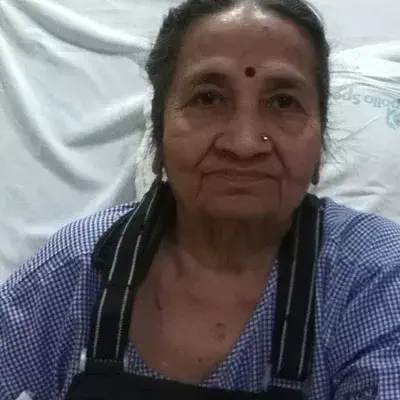
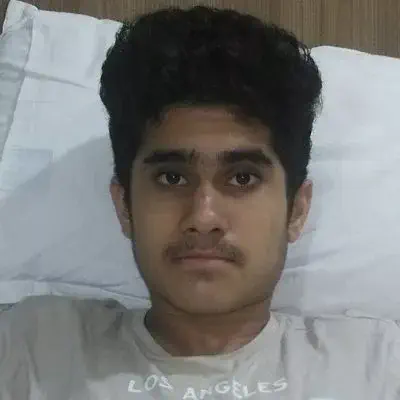
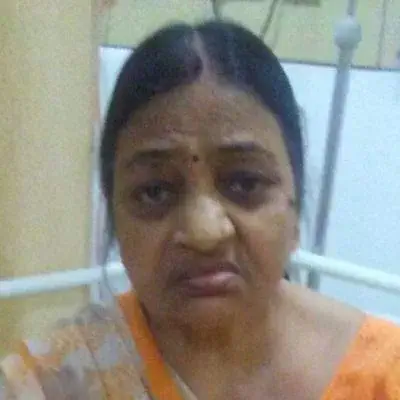
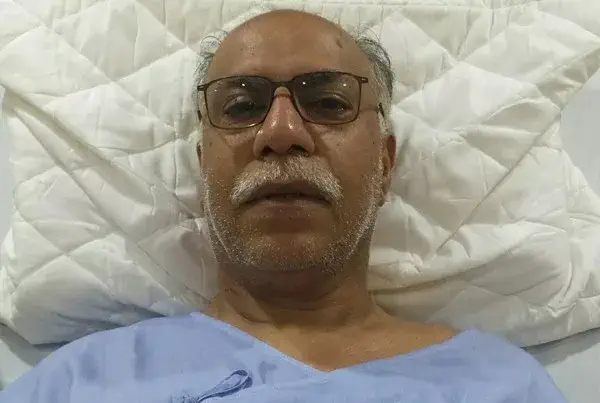

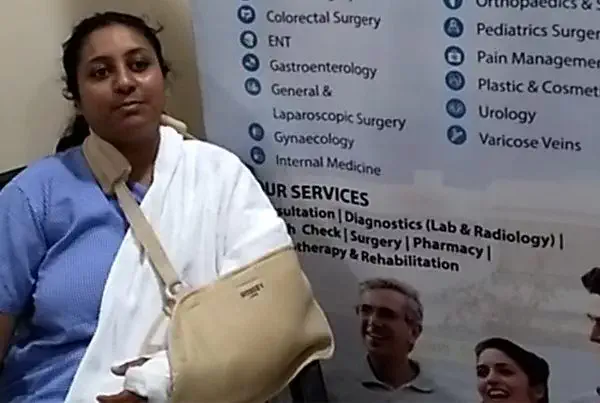
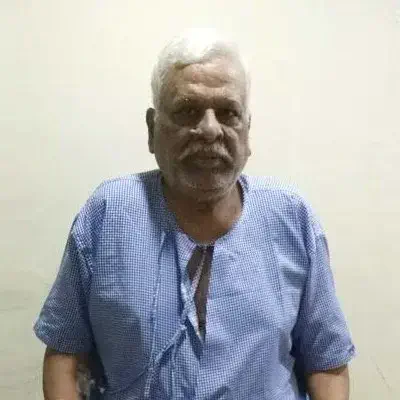
.svg)
.svg)
.svg)
.svg)








